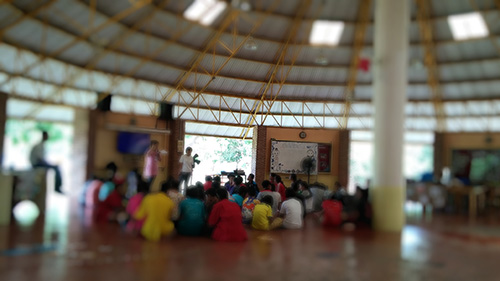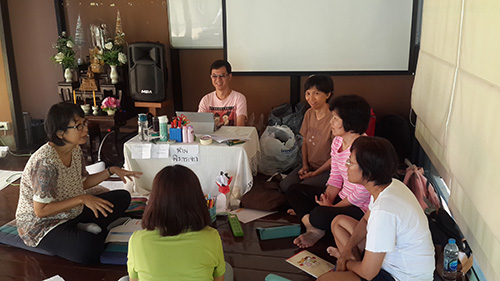For most children, the process of transitioning through adolescence into adulthood can be difficult. For young people living with HIV, however, the transition is particularly complex and can come with serious health-related consequences if they stop taking their antiretroviral medicines due to treatment fatigue or dropping out of care. The 190,000 HIV-positive children under the age of 15 in Asia will be making this transition over the coming years, but healthcare workers face major challenges in bridging the gap between pediatric and adult HIV care.

A training on achieving successful transition to adult care for adolescents of Gerda Home, a children’s charity providing care for AIDS orphans in Thailand
“Adolescent transition is a growing concern for TREAT Asia and our research network,” said Dr. Annette Sohn, Director of TREAT Asia. “This is a period of intense social, emotional, and mental development. We need more tools for young people, families, and healthcare providers to better facilitate this process.” As part of its efforts to support and study ways to achieve successful transition, TREAT Asia has provided a grant with funding from AIDS Life Austria to the Children and Youth Program of SEARCH (South East Asia Research Collaboration on HIV) at the Thai Red Cross AIDS Research Centre (TRC-ARC) in Bangkok to implement a transition model.
At present, the Children and Youth Program cares for 210 youth living with HIV, most of whom were infected at birth. “We are building a project using the infrastructure of the TRC-ARC and Youth Program to help young people with their transition to adult care,” said TREAT Asia network investigator and project advisor Dr. Torsak Bunupuradah.

SEARCH adolescent transition project staff working with clinical and community partners to develop their curriculum
The project involves volunteer youth leaders who will develop a curriculum focused on issues such as moving over to adult care, treatment, communication, stigma, and coping with negative emotions. They also organize peer counseling and outreach.
“This project has supported us to develop a transition curriculum for adolescents by closely working with experts from other regions and the network of Thai Youth living with HIV,” said Chutima Saisaengjan, project manager of the Children and Youth Program. Their team also offers ongoing resources to young adults after their transfer to adult care. “For some people who face more barriers, the case managers and youth volunteers provide the continued counselling in person and through social media, and cooperate with the staff of adult clinics as well.” TREAT Asia is working with Ms. Saisaengjan to develop and adapt transition resource materials for future use at network sites across the region.